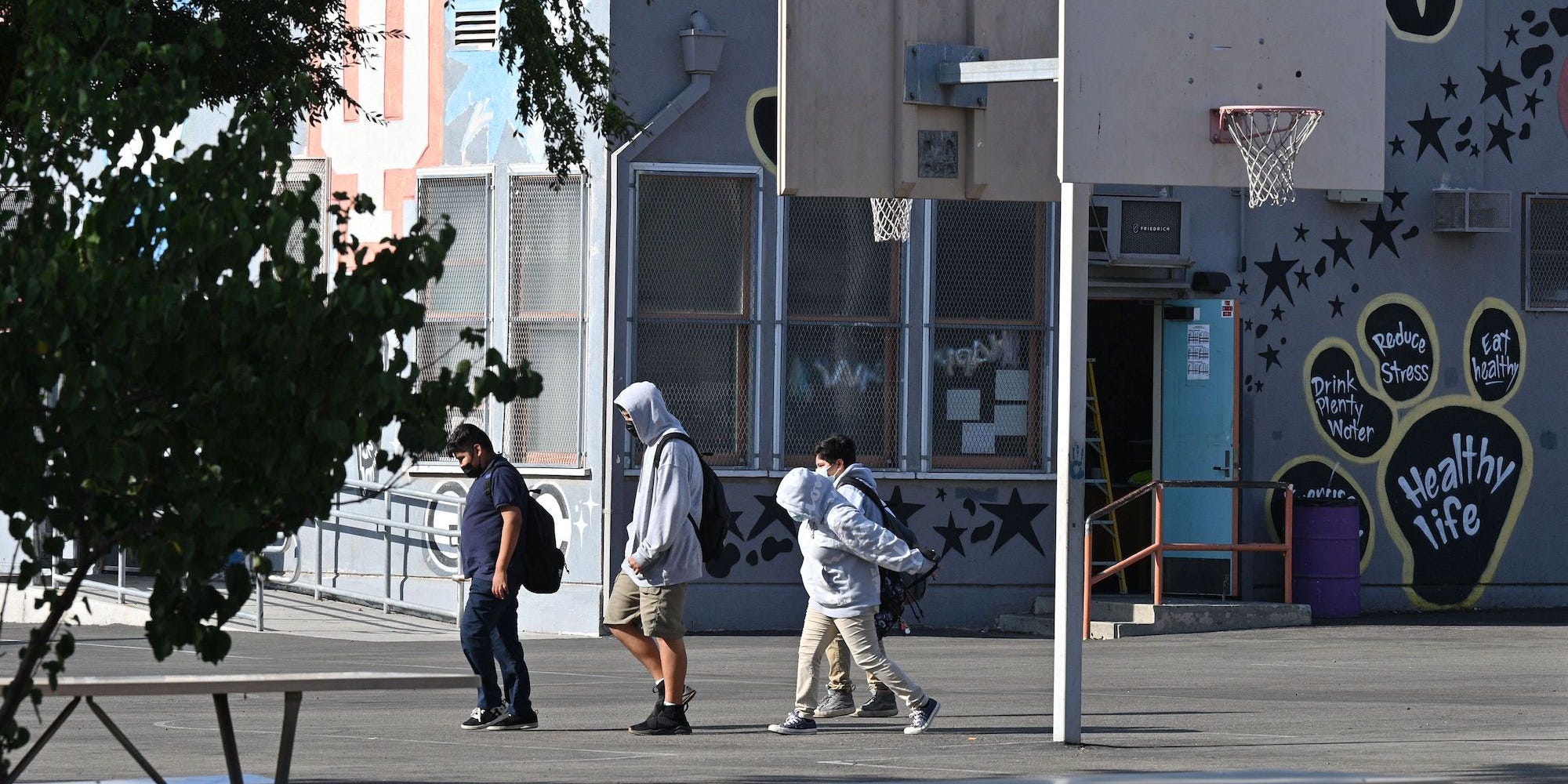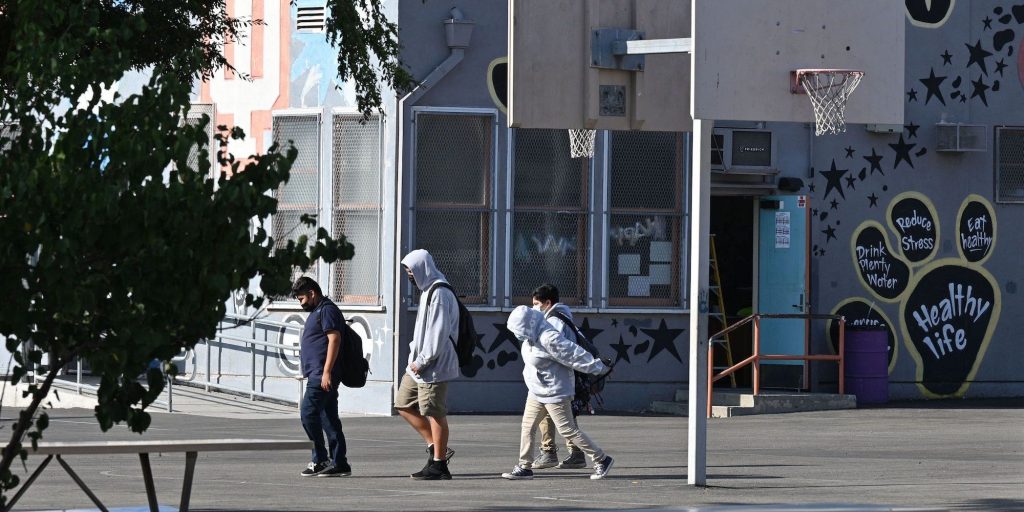
Robyn Beck / AFP via Getty Images
- COVID-19 cases among kids in the US are spiking.
- The American Academy of Pediatrics reported 243,373 cases among kids in the US in the week ending September 9.
- In early July, there were close to 72,000 COVID-19 cases among kids a week.
- See more stories on Insider's business page.
More than 243,000 kids in the US were diagnosed with COVID-19 in the past week, the second-highest week for child cases since the start of the pandemic, the American Academy of Pediatrics (AAP) reported.
In the week ending September 9, a total of 243,373 child COVID-19 cases were reported, per the AAP. At the beginning of July, roughly 72,000 weekly cases were reported among children.
"After declining in early summer, child cases have increased exponentially, with nearly 500,000 cases in the past 2 weeks," the organization reported.
During the week ending September 9, kids accounted for 28.9% of the weekly caseload, while only making up 22.2% of the US population, the AAP reported.
As of September 9, almost 5.3 million children have tested positive for COVID-19 since the start of the pandemic, the AAP said.
The statistics come as schools across the country are opening for in-person instruction. In an emailed statement, Burbio, a data service monitoring school closures, reported that as of September 12, there have been nearly 1,700 in-person school closures across 386 districts in 38 states.
Public health experts have said more mask mandates and more people getting vaccinated would help curb the spread of the virus. However, there is still no COVID-19 vaccine approved for use in kids under the age of 12.
Some parents have asked their pediatricians to vaccinate their kids under 12 despite the lack of approval from the Food and Drug Administration (FDA). The Centers for Disease Control and the AAP have warned against vaccinating children under the age of 12.
On Sunday, Dr. Scott Gottlieb, a former FDA Commissioner, told CBS Pfizer's vaccine could be approved for emergency use in kids ages 5 to 11 by the end of next month.
"The FDA says it will be a matter of weeks, not months, to make a determination if they're going to authorize vaccines for kids between 5 to 11. I interpret that to be perhaps four weeks, maybe six weeks," Gottlieb said.
The AAP said it's not common for kids to develop severe illness from COVID-19, but that there is "an urgent need to collect more data" on the long-term impacts.

